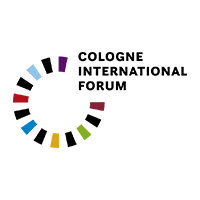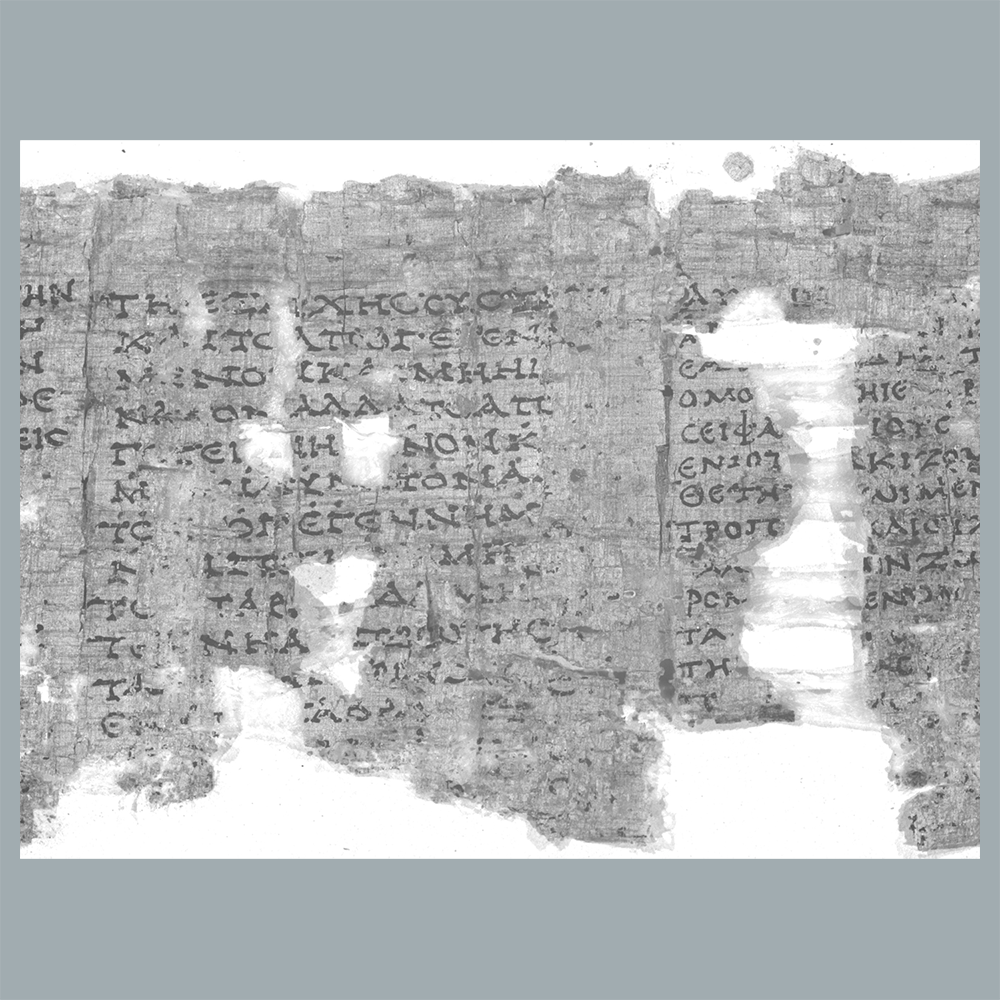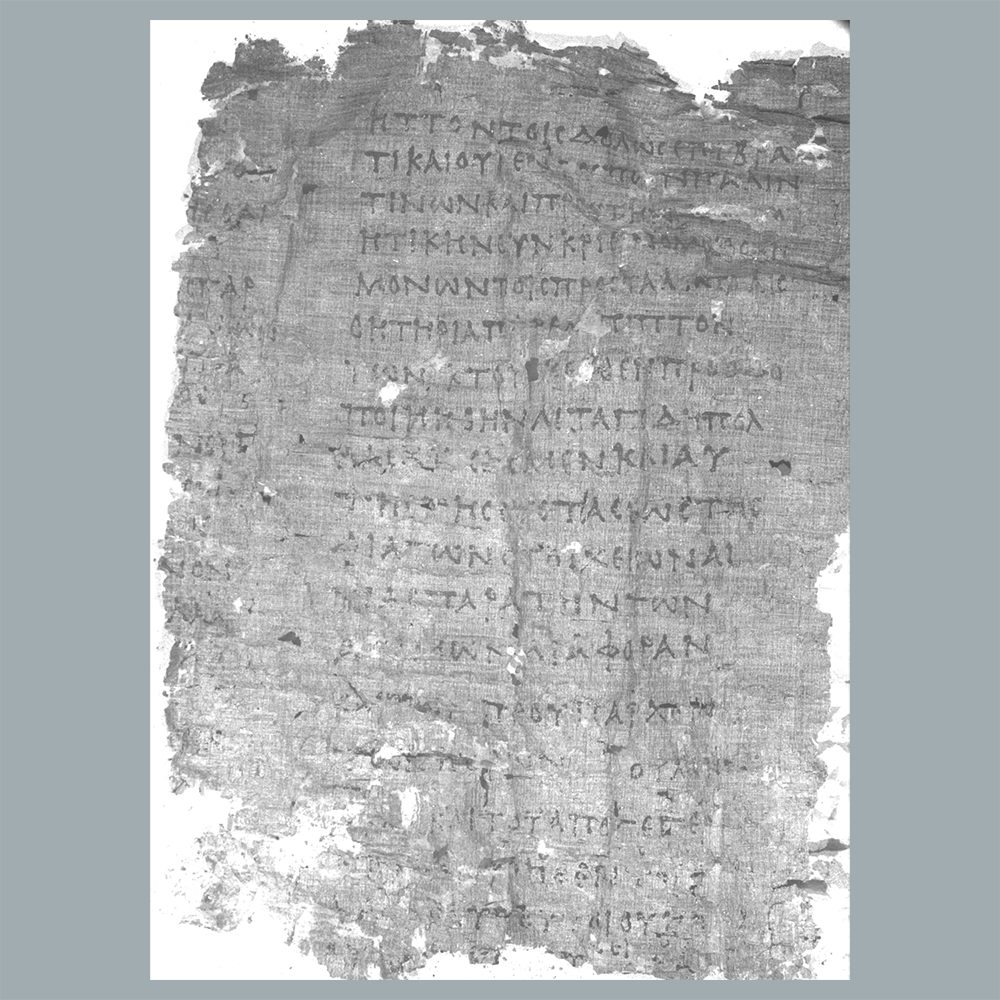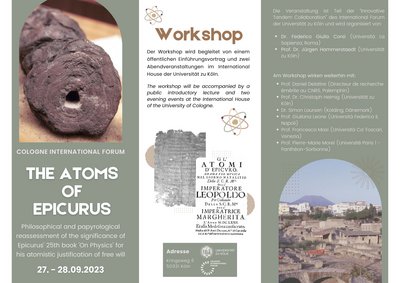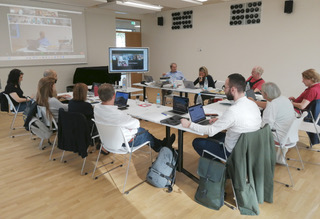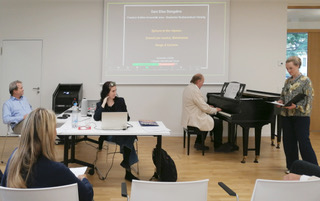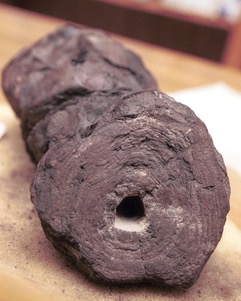The Atoms of Epicurus
Philosophical and Papyrological Reassessment of the Significance of Epicurus’ 25th Book “On Physics” for His Atomistic Justification of Free Will
Cologne International Forum Innovative Tandem Collaboration: January 2023 - December 2023
Dr. Federico G. Corsi (Italy)
Partner at University of Cologne: Prof. Dr. Jürgen Hammerstaedt (Classical Philology and Papyrology)
Abstract
The main scope of our project is to reassess Epicurus’ position on the problem of autonomous human decisions and actions. Epicurus (ca. 341-271/70 BC) had adapted Democritus’ (460/59 – ca. 370 BC) atomic physics, which considered every object to be the result of the collision and aggregation of atoms perpetually in motion through the void. However, instead of following Democritus’ materialistic determinism, which supposedly assumed every state of matter to be the direct outcome of previous atomic movements, Epicurus left space for chance and free will.
Later sources, like Cicero and Lucretius, testify of a minimal, unpredictable, and undetermined swerve in the atomic movement, named declinatio or clinamen, that Epicurus supposedly hypothesized precisely to justify the problem of free will. However, none of the texts of Epicurus that we possess explicitly mentions such movement, and a debate has arisen as to whether the author actually used it to support a “physicalist” account of free will, or if he maintained an “emergentist” position, thus trying not to reduce every aspect of reality to atomic motions and reactions.
Our aim is to tackle this problem by studying some fragments of Epicurus’ 25th book On physics, the ones that most explicitly deal with this topic. This book survives only in the Herculaneum papyri, carbonized by the eruption of Vesuvius in 79 AD and damaged during its unrolling in the late 18th and early 19th century AD. The possibility of publishing an improved text, aided by new imaging technologies, and of jointly studying the philosophical and philological problems of this book, should at the same time bring to a deeper understanding of the theoretical problems tackled in this book, and allow for a more precise, “bottom-up” interpretation of the debate around determinism and free will in the 3rd century BC.
Workshop: "The Atoms of Epicurus"
Dr. Federico G. Corsi and Prof. Dr. Jürgen Hammerstaedt organized a workshop event as part of their Tandem project "The Atoms of Epicurus". Centered around the project's framework, the event included two introductory lectures as well as a workshop which offered participants the opportunity to engage with the philosophy of Epicurus.
Final Report: The Atoms of Epicurus Project
Duration: May - October 2023
Participants: Federico G. Corsi and Jürgen Hammerstaedt
Key Findings and Hypotheses
From May to October 2023, Federico G. Corsi and Jürgen Hammerstaedt explored Epicurus’ 25th book On Physics. Initially focusing on free will, they proposed a new hypothesis: the book addresses human autonomy through the evolution of rationality. This rationality organizes sensory and affective experiences, leading to ethical principles (absence of pain) and epistemological principles (sensations and affections).
Methodology
- Bibliographic Mapping: They conducted a comprehensive review of secondary literature on Epicurus, including comparisons with Plato and Aristotle.
- Fragment Analysis: The collaboration was crucial in analyzing the fragmented papyrus, with Hammerstaedt performing autoptic checks in Naples. This analysis led to questioning and revising the initial hypothesis, emphasizing the epistemological aspects over the focus on free will.
Continuing Research
Corsi and Hammerstaedt are currently finalizing an article presenting the new text and their interpretations. This ongoing work aims to foster further dialogue and discovery in the study of Epicurus' philosophies, with plans to explore additional books and fragments in future research endeavors.
Dr. Federico G. Corsi
Federico Giulio Corsi holds a PhD in history of philosophy attained at the University Sapienza of Rome, where he also obtained his Bachelor’s and Master’s degrees in philosophy. He spent three research periods (in 2016, 2020, and 2022) at the Institut für Altertumskunde of the University of Cologne. He edited a collective book about Epicureanism in the Imperial age (Epicureismo in età imperiale. Tra filosofia, retorica, medicina e teologia. Nuove prospettive e ricerche, Roma 2022) and published a monograph on the epicurean philosopher Diogenes of Oinoanda (Epistemologia e scienza della natura in Diogene di Enoanda, Napoli 2022). His main research interests lie in the history of ancient physics and ethics, especially in the Epicurean tradition, its predecessors, and contemporaries.
